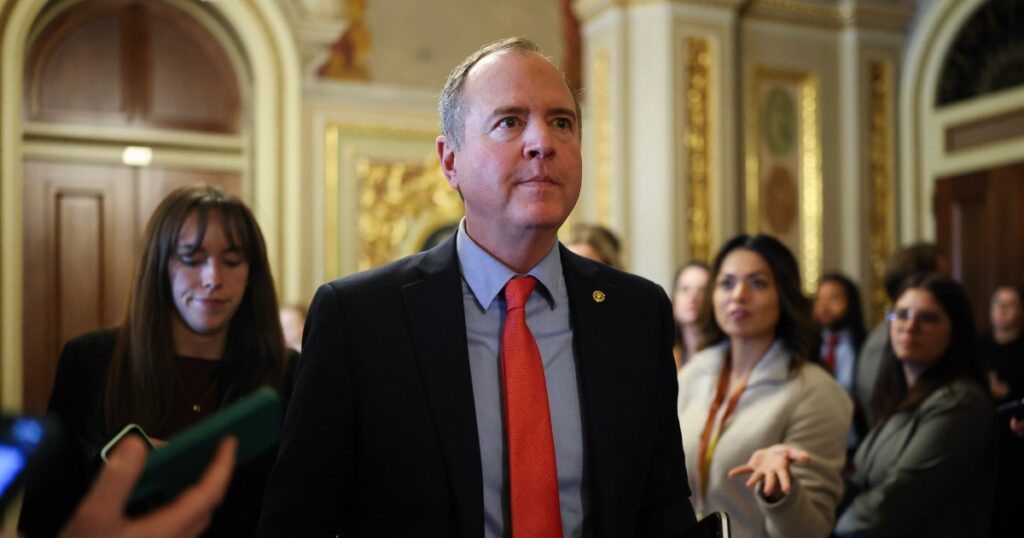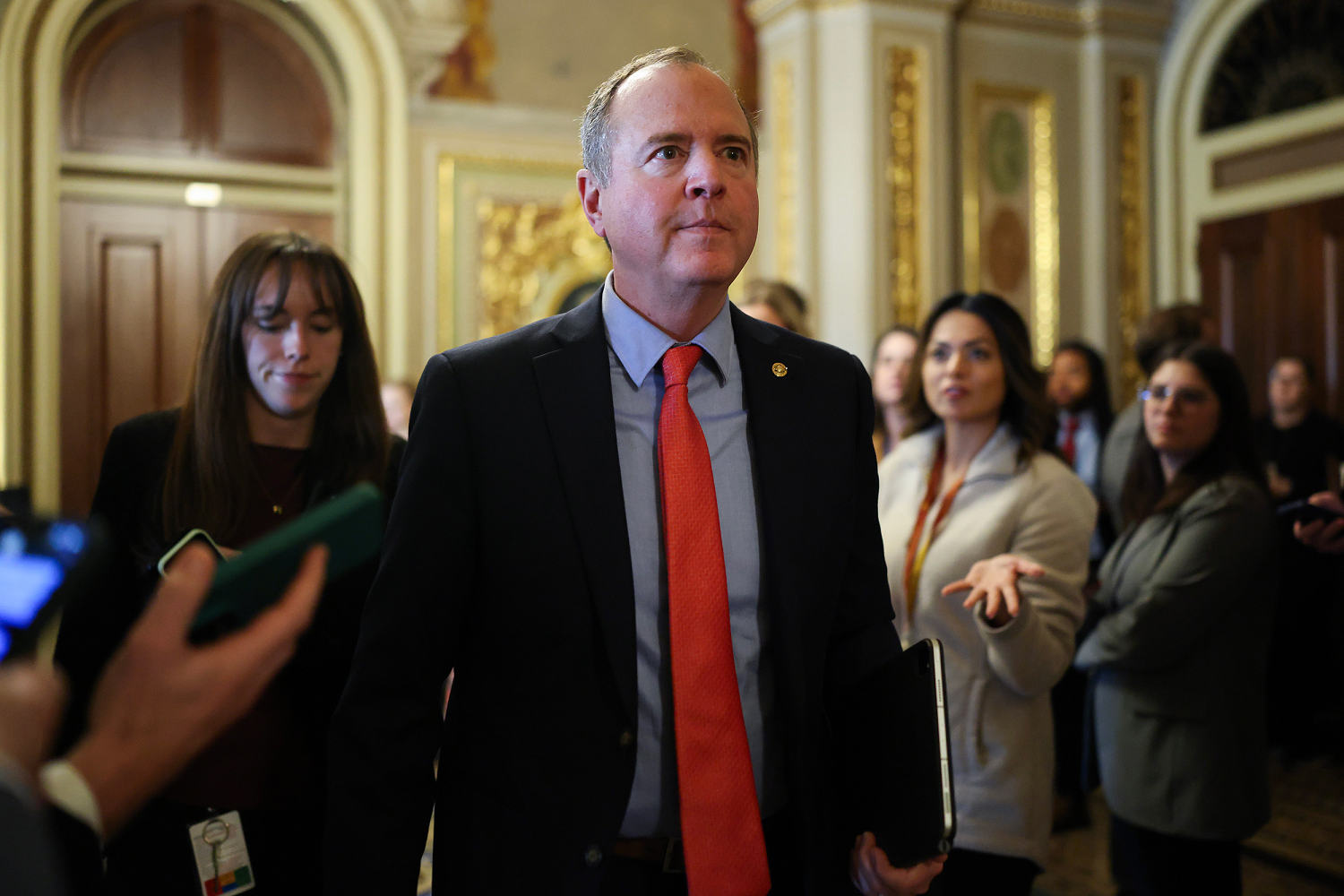

Two U.S. senators introduced a bill Tuesday that aims to minimize damage to homes and communities from floods, wildfires and other natural disasters through a federal tax credit.
The legislation, from Sens. Adam Schiff, D-Calif., and Tim Sheehy, R-Mont., would create a tax credit to reimburse people for retrofitting their homes with upgraded protections against major disasters, including hurricanes and wildfires.
The bipartisan bill — known as the Facilitating Increased Resilience, Environmental Weatherization And Lower Liability Act, or Firewall Act — seeks to build resilience in communities across the country, particularly as climate change increases both the frequency and intensity of floods, hurricanes and other disasters.
“I wanted to introduce a bill as my first bill that deals with the tragic fires in Southern California, which are an order of magnitude unlike anything we’ve seen in terms of fire-related catastrophes,” Schiff told NBC News.
Schiff said the bill is also one possible solution to the country’s growing insurance crisis, as insurance providers back out of certain markets or refuse to write new policies in hurricane-prone states like Florida or states at high risk of wildfires like California.
Schiff said the legislation came out of discussions with his constituents after the January wildfires that devastated whole neighborhoods in Southern California. Multiple blazes burned for almost a full month, killing at least 30 people, scorching more than 38,000 acres, destroying more than 15,000 homes and businesses and causing tens of billions of dollars in damages.
“One of the things that is really concerning them is the necessity of rebuilding in a more resilient way, and how can they afford to do it,” Schiff said.
The federal tax credit would cover 50% of the cost of home resiliency upgrades, such as sealing walls in a basement, installing automatic shutoff valves for water and gas lines, or replacing old roofs with fire-resistant materials.
The credit would apply in states that have seen a federally declared natural disaster within the past decade.
Schiff said those parameters meant the bill would not just be reactive for those who had recently been victims of a natural disaster, but would also broadly help Americans mitigate the danger from hurricanes, floods, tornadoes and wildfires.
Sheehy, who teamed up with Schiff to introduce the legislation, said the bill looks to lower financial barriers for people who want to protect themselves and their properties from extreme weather events.
“As a former aerial firefighter, I’ve witnessed firsthand the devastating aftermath of natural disasters on communities and families,” Sheehy told NBC News in a statement. “Given the unpredictability of a natural disaster, this bipartisan bill ensures that the American people receive the support they need to safeguard themselves against future disasters.”
The tax credit would be capped at $25,000 for families making less than $200,000. That amount would phase out for higher income households, but families making under $300,000 could still receive up to $12,500 in credit.
The credit would be fully refundable, according to Schiff, and indexed to inflation beginning in 2026.
“We wanted to target the relief to those who would most need it, so those states that are the most disaster prone, but also those for whom rebuilding, or building in a way that is more resistant to natural disasters, might be cost-prohibitive,” he said. “We targeted those families that wouldn’t be able to do this but for the assistance of a tax credit.”
 Latest World Breaking News Online News Portal
Latest World Breaking News Online News Portal






